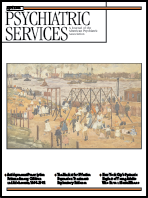Since the events of September 11, 2001, few areas of clinical practice have received more attention than posttraumatic stress disorder (PTSD). Scientific, academic, and lay fascination with the psychiatric, behavioral, social, and public health dimensions of PTSD has, understandably, been robust. Although PTSD was certainly a hot topic before September 11, the terrorist attacks have had a galvanizing effect.
One dimension of this intense demand for information about PTSD has been a burst of recent book releases. For serious clinicians, a dizzying number of books and other media are available to aid us in enhancing our knowledge base. Although some of these may be of dubious utility, thankfully there is excellent reliable material to be found.
Two such works come through American Psychiatric Publishing, Inc. (APPI). PTSD in Children and Adolescents is a recent addition to APPI's Review of Psychiatry series. This volume, edited by Spencer Eth, professor of psychiatry at New York Medical College, features chapters by a number of well-known authorities in the field. Making use of up-to-date sources and avoiding much of the ideological "preachiness" of earlier materials, the contributors cover the important areas of assessment, biological treatment, and forensic dimensions of PTSD among children and adolescents. Regrettably, chapters on psychosocial treatments—for example, cognitive therapy and family therapy—are absent.
A section on the treatment of PTSD among incarcerated youths deserves special mention. Written by William Arroyo, M.D., of the University of Southern California, this chapter is essential reading for those of us who have professional contact with such patients.
Unfortunately, the ranks of incarcerated youths are growing, partially because of a lack of less restrictive settings in the community. Many of these kids have significant psychiatric symptoms, especially symptoms of PTSD. Dr. Arroyo articulates a clear and coherent clinical approach to addressing the needs of these children.
Offering a wonderful collection of timely essays is Treating Trauma Survivors With PTSD, edited by Rachel Yehuda, a well-known researcher and clinician in the area of PTSD and director of the division of traumatic stress at Mount Sinai School of Medicine in New York City. Contributors include Edna B. Foa, Ph.D., Alexander C. McFarlane, M.D., and Bessel A. van der Kolk, M.D. One of the most refreshing dimensions of this volume is the two chapters on matching patients to treatment modality. In an age when even clinicians—let alone laypersons who have been led to expect one-session "cures" from untested treatments—may take a one-size-fits-all approach to treatment, research indicates that such an approach is bound to fail.
Concluding the volume is an important chapter by Arieh Y. Shalev, M.D., on the immediate aftermath of a disaster. As chairman of psychiatry at Hadassa Hospital in Jerusalem, Shalev is unquestionably an expert in this burgeoning area of practice. Although much of the PTSD knowledge base is related to the posttrauma phase, Shalev examines the psychological experience during the first hours after the traumatic event. His clear prose spells out both the unique features of the peritraumatic phase as well as interventions that can "head off" significant disturbances later on.
Undertaking an important and novel examination of the subject of trauma is a third book, Gender and PTSD, edited by Rachel Kimerling, a psychologist at the National Center for PTSD; Paige Ouimette, professor of psychology at Washington State University; and Jessica Wolfe, professor of psychiatry at Harvard Medical School. These individuals have assembled a fascinating collection of essays about gender-related factors in the epidemiology, neurophysiology, assessment, treatment, prevention, and politics of research and health care funding. Each of the contributors to the volume is a well-known expert in his or her area of research and practice.
Especially fascinating is a section by David F. Tolin, Ph.D., and Edna B. Foa, Ph.D., on the cognitive dimension of gender and PTSD. Cognitive therapy-based interventions have emerged as the unquestioned state-of-the-art treatment for trauma. Tolin and Foa examine the unique psychological vulnerabilities of men and women in the development of PTSD as well as the implications for effective treatment.
Trauma-related literature continues to expand. Unfortunately, much of it reflects a rejectionist attitude of the authors toward evidence-based treatment of PTSD. The three volumes reviewed here are wonderful exceptions that belong in the library of every conscientious clinician.

